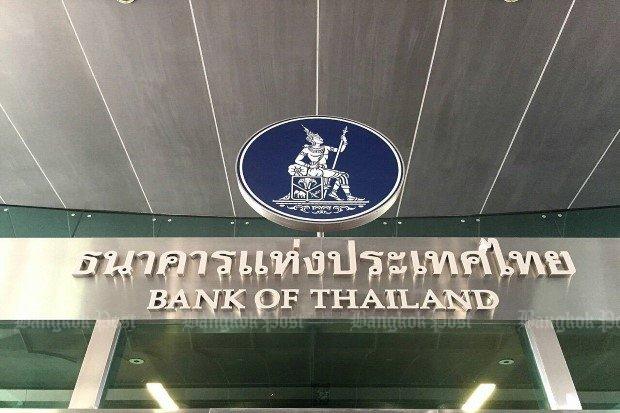
The Bank of Thailand unexpectedly cut its benchmark interest rate Wednesday for the first time in more than four years to boost the economy, and said it sees more room to ease as global risks surge.
The Monetary Policy Committee voted five to two to cut its key rate by a quarter-percentage point to 1.5%, the central bank said in a statement. Just two of the 29 economists in a Bloomberg survey expected the cut, while the rest forecast no change.
The central bank earlier had resisted rate cuts, voicing concern about consumer debt and risks to financial stability. However, the economic outlook has deteriorated sharply in recent months amid escalating US-China trade tensions, a worsening drought and a surging currency, which is hurting exports and tourism. The baht has gained about 8% against the dollar in the past year, the best performer in Asia.
“Sluggish exports and domestic consumption will make it very tough for the Thai economy this year,” said Prapas Tonpibulsak, chief investment officer at Talis Asset Management Co in Bangkok. “We expect more cuts by the central bank through 2020 because it must keep easing monetary policy to make it more effective.”
The baht was trading down 0.1% at 3.29pm in Bangkok. The benchmark SET index gained as much as 0.7%, its biggest advance in more than two weeks.
Regional Trend
Central banks across Asia are easing policy to boost growth and keep pace with the US Federal Reserve, which cut its benchmark rate by 25 basis points last week. New Zealand and India cut interest rates earlier Wednesday -- in both cases by more than forecast -- while the Philippine central bank is expected to cut its key rate Thursday after inflation reached a two-year low in July.
In its decision, the Bank of Thailand noted the economy was expected to slow and inflation could come in below target. The currency’s impact on the economy could be heightened amid global trade tensions, the bank said, adding that it would evaluate whether more steps were needed to restrain the baht.
Sunthorn Thongthip, a strategist at Kasikornbank Plc, said sectors that will benefit most from Wednesday’s cut include the property market, infrastructure funds, utilities and smaller banks, while big banks could be negatively impacted.
“The depreciation might not be enough to really improve the outlook for exports,” he said.
The new government, which took office in July, wants fiscal and monetary policy to be synchronised to protect the economy against trade tensions.
“This should stem some of the appreciation pressure, which the central bank was trying to do with other measures that proved to be ineffective,” said Prakash Sakpal, an economist in Singapore at ING Groep NV, who expects another quarter-point cut this year. “It’s not just required for arresting the currency appreciation but also for greater policy accommodation, given that there’s no clarity yet on fiscal stimulus.”
Frances Cheung, head of Asia macro strategy at Westpac Banking Corp in Singapore, said Thailand’s real policy rate remains relatively low. The central bank “probably would take time to gauge the transmission first before considering the next move,” she said.
Then again, these aren’t normal times in global markets.
“This signals a degree of urgency, given what’s happened over the past few days,” said Krystal Tan, an economist at Australia & New Zealand Banking Group in Singapore, referring to the intensifying US-China trade spat and the sharp sell-off in global markets. “Growth concerns have spiked up quite significantly.”